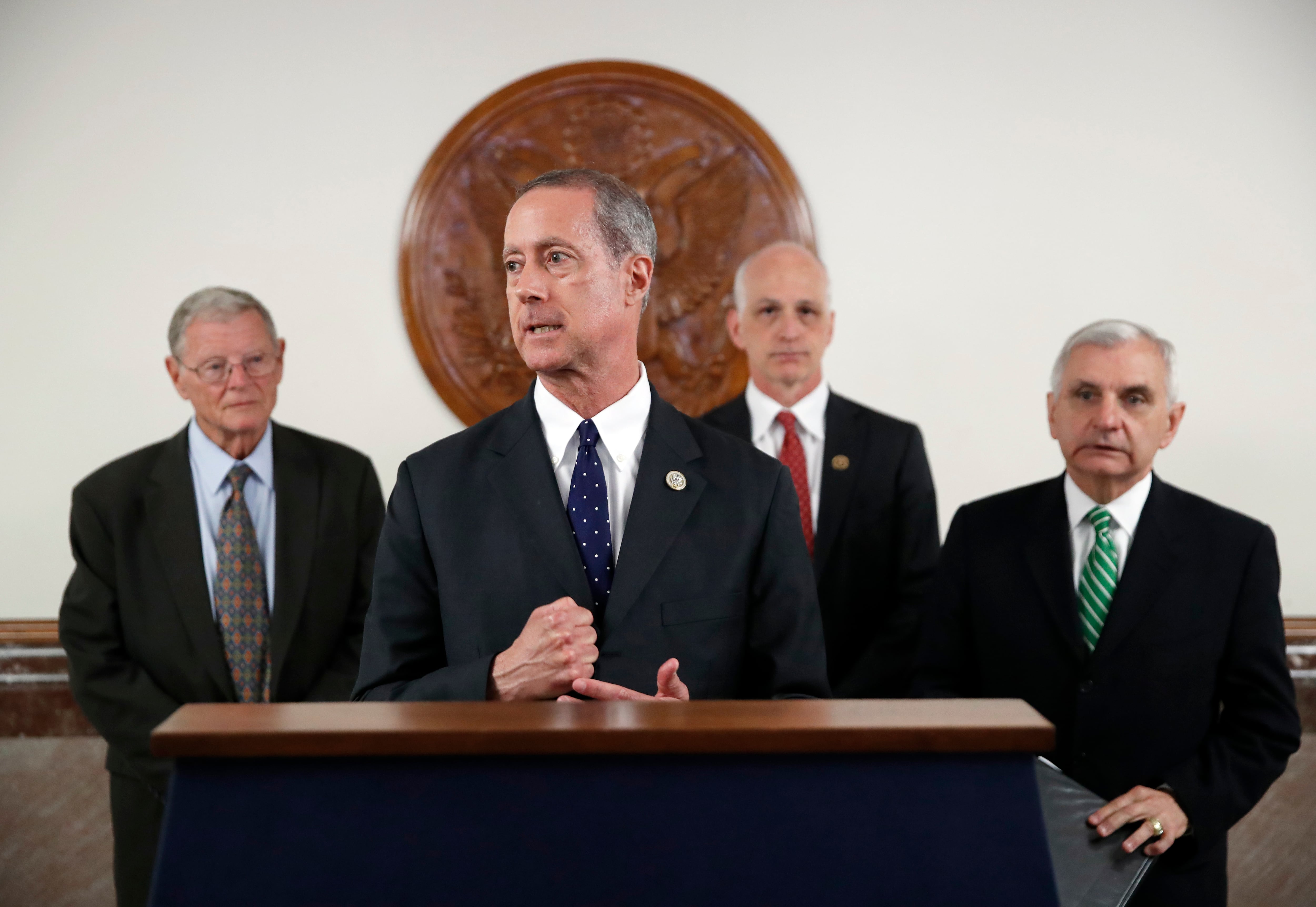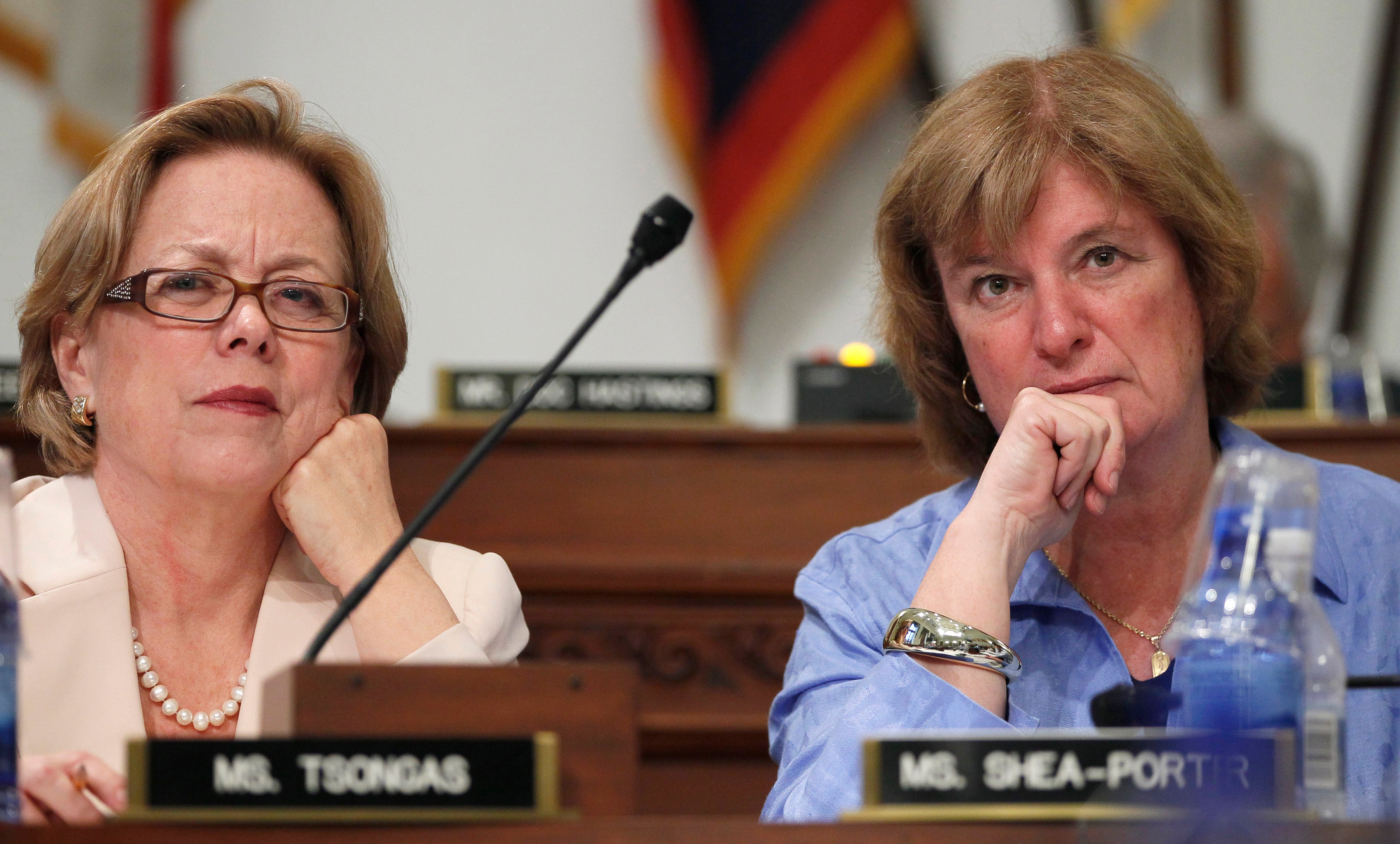WASHINGTON — Democrats won the U.S. House in convincing fashion in Tuesday’s midterm elections, promising to shake up defense policy in the coming year and raising the possibility of tumultuous impeachment proceedings against President Donald Trump.
With control of the lower chamber, Democrats will regain powerful oversight and subpoena powers they can use to investigate the Trump administration. For defense, Democrats will also assume leadership of the House Armed Services and House Appropriations committees, presenting a formidable challenge to Trump’s plans for defense spending.
“Today is about more than Democrats and Republicans. It’s about restoring the Constitution’s checks and balances to the Trump administration,” said House Minority Leader Nancy Pelosi, D-Calif., who is expected to become the new majority leader when the next Congress convenes in January.
“Tomorrow will be a new day in America.”
For Republicans, the loss of one chamber of Congress was somewhat blunted by a better-than-expected performance in the Senate. The party secured a majority of seats in the upper chamber before midnight, ensuring that Democrats will still have limited ability to slow Trump’s nominations and to override any potential vetoes.
But GOP defense hawks face a difficult road for defense spending increases next year because Democrats have promised they will prioritize domestic spending in the face of attacks from Trump and his supporters.
In addition, the White House has already outlined plans for a $33 billion reduction in anticipated defense spending levels for fiscal 2020.
But all of that assumes that Congress will be able to agree upon any defense budget at all. Lawmakers must reach a bipartisan, bicameral deal to ease statutory budget caps in fiscal 2020. With control of the House, Democrats are expected to press even harder to pursue equal increases between the defense and non-defense sides of the budget, raising the specter of lengthy impasses and government shutdowns.
And that’s if they can even broach the topic. Pelosi and other Democrats have vowed aggressive oversight of Trump’s past business dealings, his connection to Russian operatives, and a host of other potential Oval Office scandals that could upend any chance of regular order in the halls of Congress.
RELATED

The House Armed Services Committee’s ranking member, Rep. Adam Smith, D-Wash., is now poised to become the panel’s chairman. He has vowed tougher scrutiny of military personnel and planning matters, pointedly criticized the fiscal 2019 defense budget of $716 billion as too high and promised to oppose new nuclear weapons spending.
“The Trump White House, by and large, has let the Pentagon have a lot of free rein,” Smith said. “I think that’s inappropriate, and I think there is a real role for Congress to step in where the White House has stepped back to make sure our military is not engaged in ways” contrary to American values or interests.
Smith has said as chairman, he would push for Congress to reassert its oversight role, particularly in places like Niger and Yemen, where U.S. involvement is little understood by the American public. He wants the committee “actively engaged” in fighting for the rights of women and members of the LGBTQ community to take part in military service however they desire.
Smith is a supporter of another base closure round, a smaller role for the U.S. military in the world, and a smaller nuclear weapons arsenal. He opposed Trump’s proposed 355-ship Navy and has touted his votes to end building Northrop Grumman’s B-2 bomber and Lockheed Martin’s F-22 fighter.
RELATED

As Republicans in the House shift to the minority, they’ll do so without two current House Armed Services Committee members. Oklahoma Rep. Steve Russell was upset in his re-election bid, and Colorado Rep. Mike Coffman — who led the committee’s personnel policy panel ― lost his seat, as well. Russell, whose district went to Democratic presidential candidate Hillary Clinton in 2016, had worked to distance himself from Trump — over immigration, gun laws and Space Force.
The Senate lost two senior Democrats on the Senate Armed Services Committee: Sen. Claire McCaskill, D-Mo., the top Democrat on the Senate Homeland Security and Governmental Affairs Committee; and Sen. Joe Donnelly, D-Ind., the top Democrat on the SASC Strategic Forces Subcommittee. Trump had campaigned for their challengers among other Republicans across the country in recent weeks.
RELATED

Amid all the changes, Congress will see some old faces with national security backgrounds return to Capitol Hill.
Former Massachusetts Gov. Mitt Romney won an open Utah Senate seat. As a GOP presidential candidate in 2012, Romney supported boosting the Navy’s shipbuilding rate from nine per year to 15 per year and “a robust, multi-layered national ballistic-missile defense system.”
Obama and Clinton-era State Department official Tom Malinosky, ousted a four-term GOP incumbent in New Jersey. Malinowksi served as advocacy director at Human Rights Watch and later assistant secretary of state for democracy, human rights, and labor under Obama.
Joe Gould was the senior Pentagon reporter for Defense News, covering the intersection of national security policy, politics and the defense industry. He had previously served as Congress reporter.
Leo covers Congress, Veterans Affairs and the White House for Military Times. He has covered Washington, D.C. since 2004, focusing on military personnel and veterans policies. His work has earned numerous honors, including a 2009 Polk award, a 2010 National Headliner Award, the IAVA Leadership in Journalism award and the VFW News Media award.




